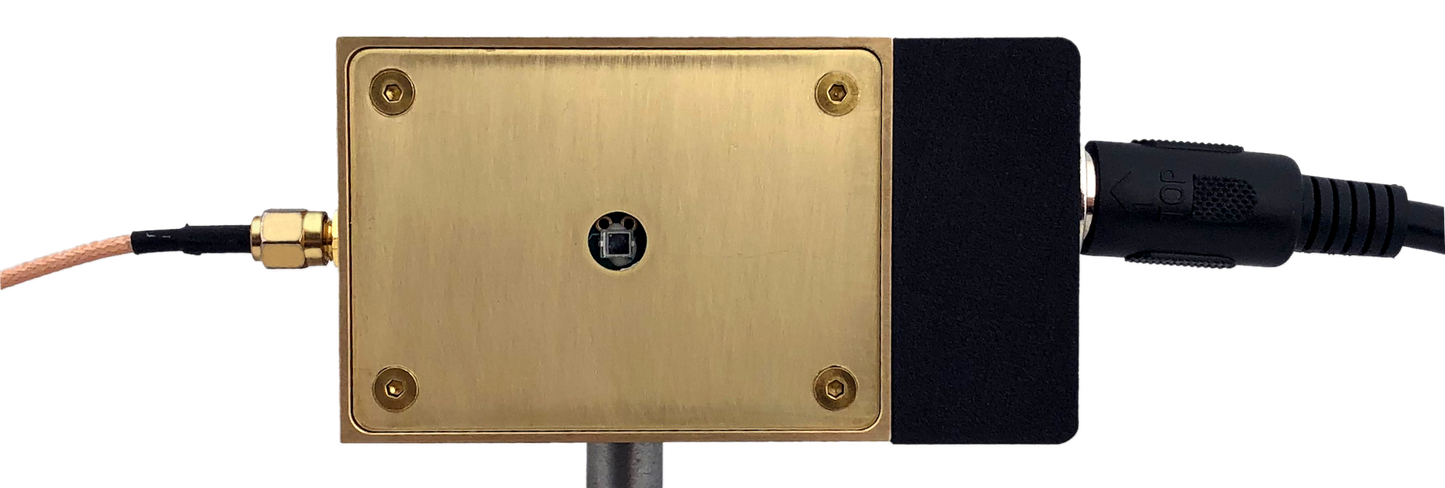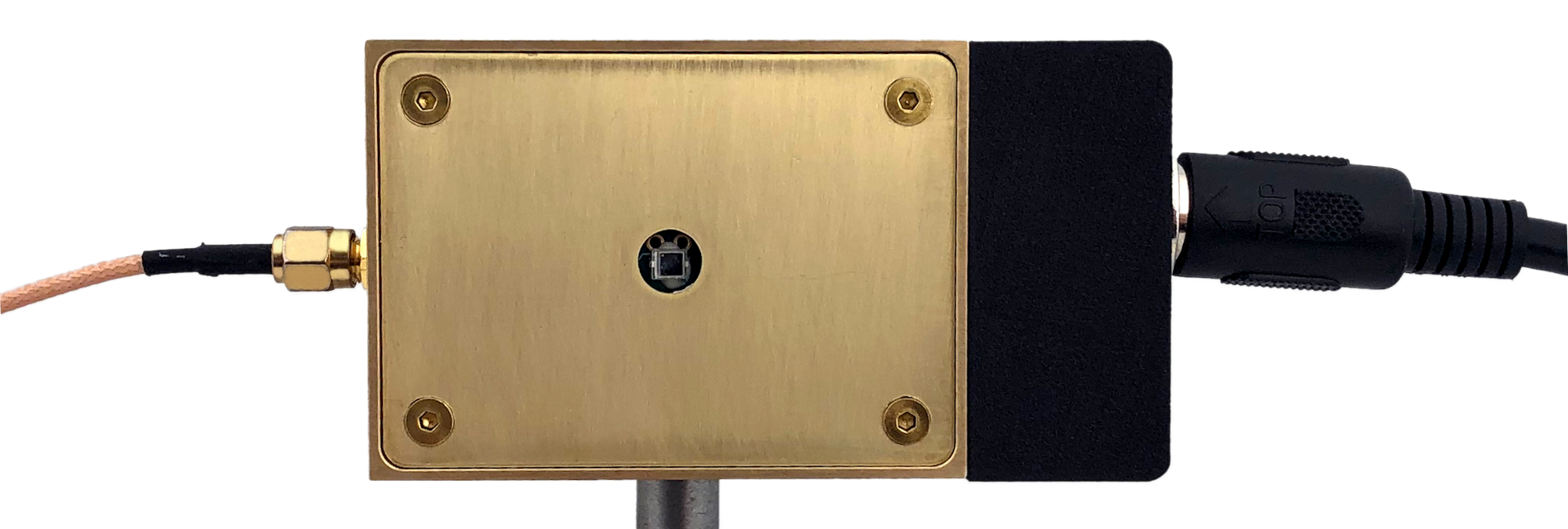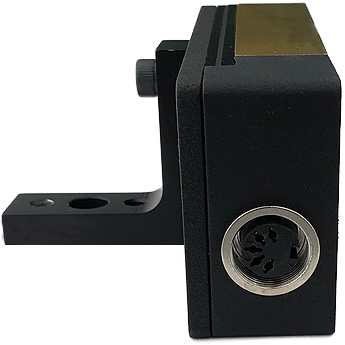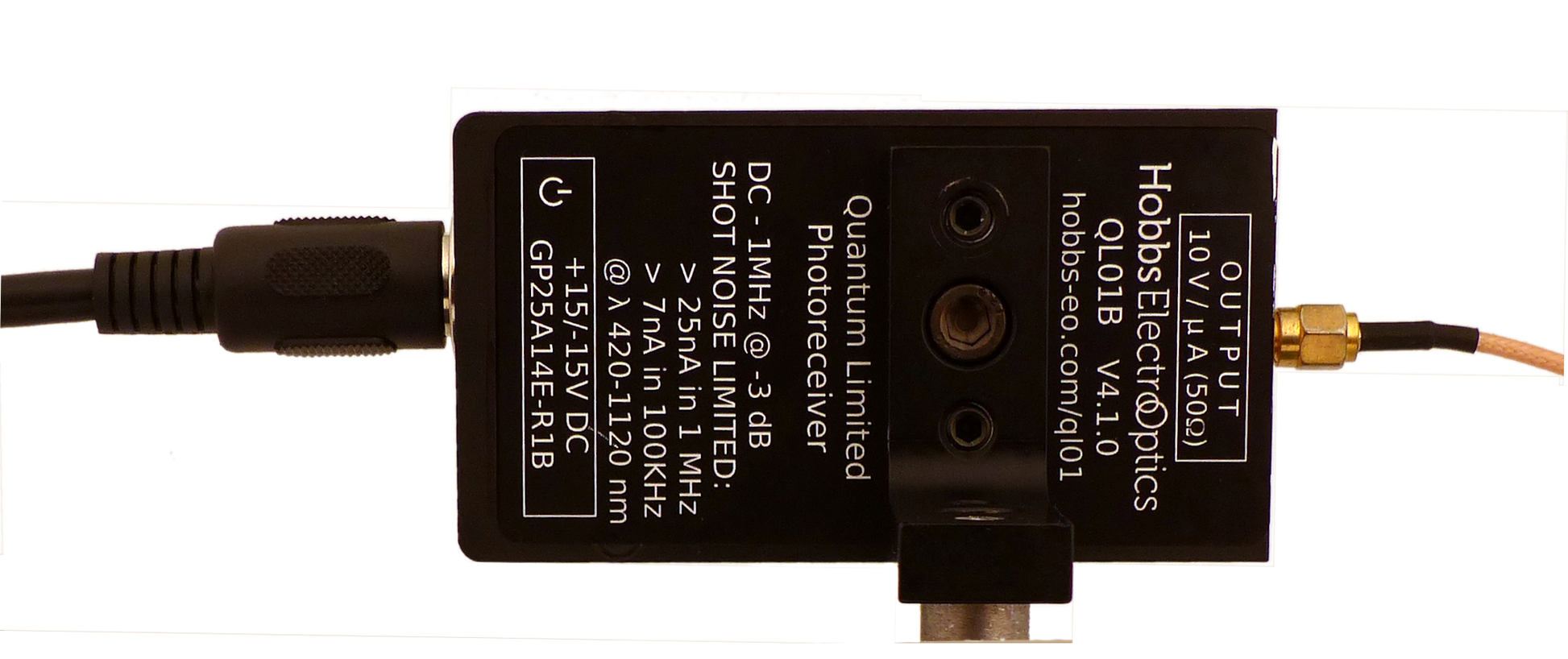Hobbs ElectroOptics
QL01 Photoreceiver
QL01 Photoreceiver
Couldn't load pickup availability
QL01 Quantum Limited Photoreceiver
| Bandwidth | DC - 1 MHz |
| Rise/Fall Time | 400 ns |
| Transimpedance | 10 MΩ |
| Slew Rate | No slew limiting with full scale step input |
| Output Voltage | 0-10 V |
| Dark Current (20o C) | 2 nA |
| Output Impedance | 50 Ω |
Model Comparison
| Model A | Model B | |
|---|---|---|
| NEP @ 840 nm (DC - 20 kHz) | 70 fW | 70 fW |
| NEP @ 840 nm (DC - 100 kHz) | 80 fW | 70 fW |
| NEP @ 840 nm (DC - 1 MHz) | 170 fW | 125 fW |
| RMS Noise (DC - 20 kHz) | 70 μV | 63 μV |
| RMS Noise (DC - 100 kHz) | 160 μV | 145 μV |
| RMS Noise (DC - 1 MHz) | 1.1 mV | 0.8 mV |
Applications
- Spectroscopy
- Micro-plate readers
- Beam analysis
- Test systems
- Optical source calibration
- Florescence
- Proof of concept & test systems
With a quantum-limited photoreceiver, the signal-to-noise ratio of the measurement is just that of the light itself – all the information present in your optical signal is preserved for the measurement. Typically we’re working pretty hard to get that signal, so it’s a shame to let a poor photoreceiver degrade it. That’s where the QL01 comes in.
Competing products may reach this level near DC, but none beyond 10 kHz, a full factor of 100 slower than the QL01.
Why should you care about speed? First of all, with 100 times the bandwidth and the same noise level, you get 100 times more data. More subtly, you can do your measurement further from DC, where many sources of noise and interference are much less troublesome.
Ordering
For larger quantities or OEM inquiries please email us at info@hobbs-eo.com.
| Documentation |
|---|
| User Manual |
| Product Brochure |



Documentation
| Product Brochure |



